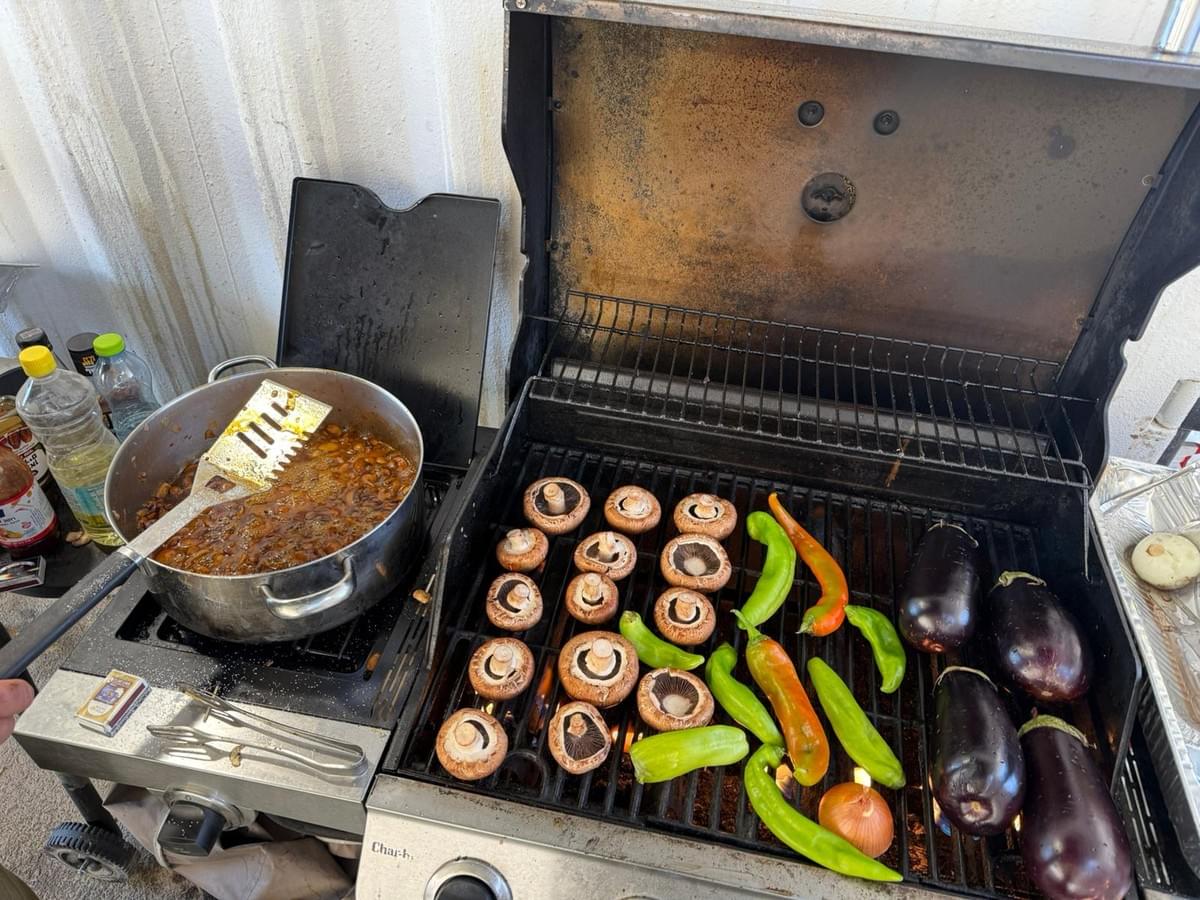Finding sacred time in the most unexpected of places
When I enlisted, I never imagined I'd experience some of the most meaningful Shabbatot of my life on an army base. But serving in a unit that's 100% orthodox—with half being Chabad—while other teams around us are mixed religious and secular has given me a perspective I never expected to have, especially during wartime.
Preparing for Sacred Time
Our Shabbos preparations began with something you won't find in any civilian community: a halachic briefing. Our commander walked us through what we could and couldn't do, including the complex question of carrying phones for security purposes during wartime. It was surreal yet beautiful—military protocol meeting ancient Jewish law, with our leadership thoughtfully arranging assignments so everyone could daven and eat together.
We then prepared salads, grilled vegetables and other treats on the barbecue and gas grills we had for our unit. The more seasoned soldiers had this down to a science and created some of the best salads I have had. Clearly over their time in the army, they became experts! They took everything available to them and made it into a delicacy!

Shabbos as a Community
Friday night davening was beautiful - a mix of Ashkenaz and Sephard that felt like yeshiva, with all the men davening, singing and dancing together. The whole base ate by units, with our base cook supplementing home-brought food. Our zemirot echoed across the compound with such joy and volume that I heard them clearly from the guard tower half a kilometer away during my watch. There's something powerful about Jewish song carrying across a military base under the desert stars.
Shabbos morning brought communal kiddush at our makeshift shul: herring, kugel, cholent, and singing that stretched until either jobs called or afternoon naps beckoned. But the real magic happened in our Zula (unit tent), which had become the natural gathering spot as the only completely Shabbos appropriate space on base. No phones buzzing, no TV chatter, no background music: just pure Shabbos atmosphere.
We shared seudah shlishit as the day wound down, that bittersweet third meal that always makes you want to hold onto Shabbos just a little longer, before getting briefed for Saturday night operations and Sunday's schedule.
The Paradox of Wartime Shabbos
It's honestly a weird balance—observing Shabbos during wartime while wearing army fatigues. The juxtaposition of preparing for military operations while lighting candles, of carrying weapons alongside prayer books, of maintaining security protocols while creating sacred space. Yet somehow, without any compromise to our observance, we kept Shabbos completely while maintaining the full joy and spirit of oneg Shabbos.
The IDF has made remarkable strides in recent years to make Shabbos feel like Shabbos for religious soldiers, and the ripple effects enhance the weekend experience for secular soldiers too. When half the base is singing zemirot, everyone feels the specialness of the day, regardless of their personal observance level.
Looking Forward
There's still room for improvement in how the military accommodates religious observance, but I find myself already looking forward to our next base Shabbos. There's something uniquely powerful about creating this island of holiness in the middle of military service, about proving that sacred time doesn't require perfect circumstances—sometimes it requires the opposite.
Who knew that some of my most memorable Shabbatot would happen not in the comfort of my family's dining room, but in a tent in the desert, surrounded by brothers-in-arms who've become family in the truest sense?
May we merit to celebrate future Shabbatot in peace, but until then, we'll keep making sacred time wherever we find ourselves.

